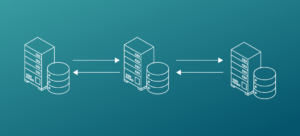
In the world of the DBMS, more than half (52%) of your fellow database professionals say that the cloud has a big impact on how they approach database administration.
“That many DBAs, database developers and architects can’t all be wrong,” you say. “Glad I’m not missing that wave. What else is affecting the way they do their work?”
Other prominent trends that affect database administration are big data (41%), artificial intelligence/machine learning (39%), DevOps (32%) and agile development (25%).
Like you, your peers in other companies and industries have a lot more on their mind than just keeping the lights on.
A look at the shifting DBMS landscape
In fact, when it comes to how the quality of their work is measured, more than half (56%) say that system performance is an important criterion, followed by speed of issue resolution (48%) and system uptime (43%). Keep that in mind for your next salary review.
All of those data points and more are explained in Database Professionals Look to the Future: PASS Survey on Trends in Database Administration, a report from Unisphere Research. The survey polled more than 300 members of PASS (Professional Association for SQL Server), the world’s largest community of data professionals working on Microsoft data products.
In this post, I’ll highlight several of the most prominent trends affecting how database professionals like you manage their daily responsibilities.
1. Cloud data storage
Purchasing computing resources in the cloud is no longer novel, nor are software-as-a-service (SaaS) applications. The new “S” in the cloud is storage-as-a-service (STaaS).
Although the cost of on-site arrays has dropped dramatically, many organizations are seeking to further minimize capital expenditures by migrating data storage to a cloud-based subscription model. For similar reasons to adopting IaaS or PaaS, companies are looking at the flexibility and scalability of cloud data storage, along with reducing the need to continuously upgrade storage technology.
The rise of cloud adoption is tied to reductions in on-premises data center operations and to the decrease in the number of onsite database professionals. However, enterprise cloud is relatively immature — most data is still managed and stored on premises and most database administrators have relatively little experience managing cloud data and optimizing its connection with distributed applications.
2. Big data
Data-driven decision-making is no longer aspirational — it’s required — and database professionals are at the forefront of ensuring the right data is accessible to data scientists for analysis and reporting. Database professionals who are managing greater numbers of disparate databases across multiple platforms are also being asked to integrate transactional and operational data for BI reporting and analytics. Additionally, there’s motivation to improve data quality to enhance the level of trust in the data fueling business decisions.
3. Machine learning and artificial intelligence
Where the data becomes too complex for statistical analysis, the work of machine learning begins. Algorithms are used to identify patterns and predict outcomes based on massive volumes of data. That data needs to be collected from multiple sources and fed to the AI infrastructure at blazing speeds and with high levels of accuracy. Database professionals will need to navigate an increasingly complex data landscape, faster than ever before.
At the confluence of big data and machine learning (ML), a new role is evolving for database professionals: the ML Operations engineer. The role includes knowledge of machine learning models, because it’s necessary to understand how to deploy them, and knowledge of back-end systems and processes. ML Ops engineers understand both the voracious appetite of models for more data and the most effective ways of keeping the models fed.
4. DevOps
Consider the database professional’s point of view: “If agile has been around since the 1990s and DevOps tools have been around since the late 2000s, then why can’t our database development catch up with our application development?”
That’s a fair question. But even if you’re not trying to catch up to your application developers, it makes sense that database professionals should want to take advantage of DevOps methods and tools. It’s not easy to reconcile the agility of application development with slow database releases, so how can you get more database development into your DevOps pipeline? When organizations become serious about integrating database development and change management into their DevOps pipeline, the result is continuous database operations.
Then, looking at it from another point of view, DevOps as a culture benefits when it extends to data managers, DBAs and database developers. In fact, it makes the organization’s DevOps initiative stronger when database changes go into the continuous integration (CI) and continuous deployment (CD) pipeline, along with application changes.
5. Agile development
Agile aligns with database management in that the essence of succeeding in digital transformation is to use data as a competitive advantage as quickly as possible. Database professionals are as far upstream as anybody in the organization and well suited to finding and providing data fast.
Smart data managers adopt the development team’s continuous processes and apply them to data modeling so that it keeps pace with applications. They bend the generally linear approach to database management so they can accommodate the sprint-to-sprint and release-to-release approach of developers. They even nudge database code to the same priority as application code, using the same repository that the application developers use for their code and subjecting it to CI.
Further insights
Do the database professionals in your organization manage a single database instance (like one percent of those surveyed), 2 to 10 instances (34%) or more than 500 (3%)? Are you most worried about non-relational technologies (32%), lack of trained personnel (29%) or your shrinking IT budget (25%)?
Wherever you are on those ranges, you can gain further insights into the areas your peers feel are having the greatest impact, and maybe a few ideas about growing your own career. Download your free copy of Database Professionals Look to the Future: PASS Survey on Trends in Database Administration. Your role in managing your company’s DBMS isn’t going away anytime soon, but it certainly is changing.



